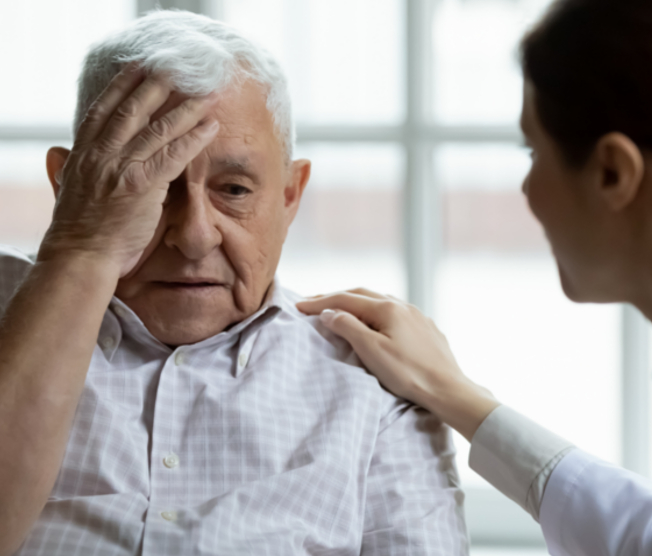 While older adults can experience balance issues after a fall and subsequent injury, the source of most balance problems are related to the inner ear. This can result in a spinning or uneven sensation, even when sitting down.
While older adults can experience balance issues after a fall and subsequent injury, the source of most balance problems are related to the inner ear. This can result in a spinning or uneven sensation, even when sitting down.
Roughly eight million adults experience a balance disorder. For adults 65 and older, about 25 percent have a condition requiring assistance and is a primary reason for medical attention.
Balance issues strongly correlate with falls among this age group, especially for adults 75 and older. Considering these risks, it’s a good idea to address this sensation and begin to make modifications.
What Are Balance Disorders?
“Balance” refers to the sense of control and stability you feel over your body. It influences our ability to walk, get up from a chair, climb stairs and bend over. Lack of balance can limit an older adult’s ability to perform tasks independently.
Multiple parts of the body work in conjunction to help with balance, including your vision, nervous system, muscles and the balance center of your brain and inner ear. A sense of unsteadiness or staggering as you walk can reveal these aspects are no longer coordinated.
Why Older Adults Develop Balance Problems
Although risk of balance disorders correlates with age, it’s not directly responsible. Common causes include:
- Inner Ear Issues: The vestibular system regulates your sense of balance. An infection called labyrinthitis can occur in this area, causing the system to become swollen. You may also experience vertigo or a respiratory, viral or bacterial infection.
- Circulatory System Concerns: Dizziness can indicate a circulatory system issue, from changes in blood pressure to decreased blood circulation or early signs of stroke. Particularly for decreased circulation, vital organs in your body may not receive enough oxygen to keep functioning.
- Neurological Issues: Balance issues can coincide with or indicate the development of a condition like multiple sclerosis or Parkinson’s disease.
- Medication Side Effects: Dizziness or decreased circulation may be a side effect of certain medications. Older adults experience balance issues more frequently while using antidepressants, anti-seizure drugs, high blood pressure meds and sedatives.
- Low Blood Sugar: If you have diabetes, dizziness may be a sign of rapidly dropping blood sugar. This symptom may occur in conjunction with sweating or anxiety.
- Nutrition Concerns: Dizziness can also indicate an iron deficiency or anemia. Balance issues may coincide with a sense of weakness.
Signs of a Balance Problem
Based on the factors descried above, you may be experiencing a balance issue if you:
- Feel dizzy or like your head is spinning
- Feel like you’re going to fall or have already fallen
- Experience lightheadedness and faint frequently
- Have blurred vision
- Routinely feel confused or disoriented
- Experience nausea, vomiting or diarrhea with dizziness
- Feel a sense of anxiety or panic
- Can feel your heart rate change
Because balance issues may be associated with a cardiovascular condition, you’re advised to seek immediate medical attention for tightness in the chest, numbness in the extremities, hearing loss, a rapid or irregular heartbeat, seizures or double vision.
Addressing Balance Issues In Older Adults
Balance disorders can alter quality of life, contributing to a fall or increased anxiety. As balance issues can indicate the development of a serious health condition, consult your doctor as soon as possible to identify an appropriate treatment plan.
Along with medication, physical therapy exercises may be prescribed to address the motion of your head and body. You should also discuss:
- If it’s safe to continue driving
- How you walk up and down stairs
- How you sit in a chair and stand up
- Making modifications to your bathroom
- If you should use an assistive device or have handrails installed
- Proper footwear for an older adult with balance issues
If you’re experiencing balance issues, address the source with our medical staff at West Hartford Health & Rehabilitation Center. To learn more about short-term rehabilitation, contact us today.
« Footwear for Seniors to Prevent Falls

